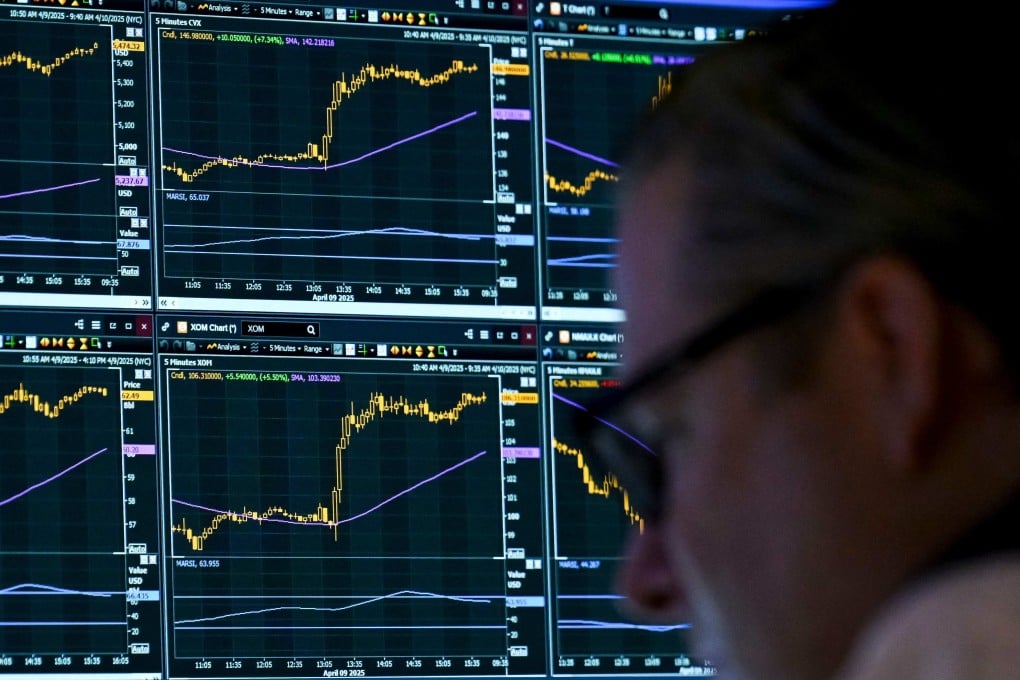Advertisement
Macroscope | What makes US trade war more dangerous than 2008 crisis: Trump
Trump’s sudden reversal on some tariffs shows the stability of the global economy is at the mercy of one reckless, unreliable president
Reading Time:4 minutes
Why you can trust SCMP
0

It is no exaggeration to describe the moves in financial markets in the week after US President Donald Trump announced swingeing “reciprocal” tariffs on nearly all US trading partners as historic.
Following Trump’s assault on the global trading system on April 2, the S&P 500 equity index suffered its fifth worst two-day performance since World War II, according to data from Deutsche Bank. On April 7, the Hang Seng Index plunged 13 per cent, its sharpest fall since 1997. Japan’s 10-year bond yield recorded its biggest weekly decline since 1998, while the increase in spreads on US high-yield, or junk, bonds rose nearly a percentage point in the space of two days, a rise typically associated with a financial crisis.
On April 9, Trump once again stunned investors by announcing a 90-day suspension of reciprocal tariffs on countries that had not retaliated against his levies. This caused asset prices to soar and reinforced the belief among many traders that Trump can be swayed by pressure from markets.
However, the dizzying volatility in markets pales in comparison to the damage inflicted on the rules-based multilateral trading system. The extraordinarily punitive tariffs – in particular the staggering 125 per cent levy on Chinese goods in response to Beijing’s retaliation – constitute the biggest shock to international trade since the collapse of Bretton Woods in 1971.
The dramatic shift in US trade policy is also a huge tax increase on households’ and businesses’ purchases of imported goods. Before Trump announced his 90-day tariff pause, JPMorgan expected the US to slip into recession this year and assigned a 60 per cent probability to a global recession as the trade shock was “magnified by retaliation, supply chain disruptions and a sentiment shock”. Given the extreme uncertainty over US trade policy, such bleak scenarios are still plausible.
Comparisons are being drawn with the 2008 global financial crisis. Although banks across the world are well-capitalised and there are no signs that funding markets are seizing up as they did after the collapse of Lehman Brothers, vulnerabilities in the financial system have become more acute over the past week.
Advertisement
